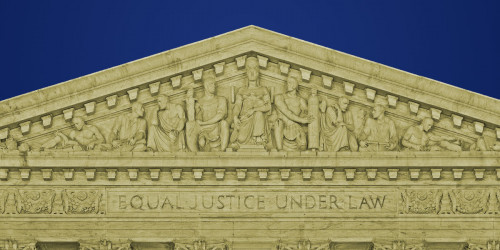Egyptian activist faces trial for Tweet
In Egypt, an activist and blogger is facing trial for a Tweet. Asmaa Mahfouz, a prominent young activist, is facing trial by court martial for defaming the ruling Supreme Council of Armed Forces (SCAF) by posting to Twitter:
If the judiciary doesn't give us our rights, nobody should be surprised if militant groups appear and conduct a series of assassinations because there is no law and there is no judiciary.
According to a statement from Reporters without Borders, Mahfouz is also being charged with inciting violence, disturbing public order and spreading false information via her Twitter account. Mahfouz has defended her statements, saying "There is no truth in these accusations, I was only warning the military council that the absence of justice will lead to chaos."
EFF condemns the decision of the SCAF to prosecute Mahfouz and urges the Egyptian military to respect the right to free expression.
Argentinian telecoms regulator issues notice to ISPs to block websites
According to a report in TechEye, Argentina’s National Telecommunications Commission (CNC) has responded to an order (in Spanish) from Federal Judge Sergio Torres to block two websites by issuing a directive to local ISPs. The judge’s decision was in response to the creation of two websites--leakymails.com and leakymails.blogspot.com--that linked to allegedly leaked emails from members of the Argentine government.
Interestingly, as the latter website is hosted on a Google product, Argentine authorities could have issued a request to Google to remove the content, as they have done in the past.
Rather than ridding the Internet of offending content, blocking the sites appears to have triggered the Streisand Effect; on Twitter, @LeakyMails has been posting links to mirrored versions of the blocked content.
As Renata Avila argues on Global Voices Advocacy, "the order to preemptively block a Website before a criminal conviction might be against the American Convention on Human Rights, a binding treaty for Argentina, which establishes on its article 13 ‘Freedom of Thought and Expression’."
Article 13 also provides that the exercise of such rights shall not be subject to prior censorship but shall be subject to subsequent imposition of liability.
Pakistani ISP blocks Wikipedia page

As the above screenshot indicates, Pakistani ISP WorldCall has blocked access to the Wikipedia page for Mohammadi Begum following a directive from the Pakistan Telecommunication Authority. According to one Pakistani activist, the site was likely blocked due to its relation to the Ahmadiyya community, a religious minority that Pakistani state has deemed non-Muslims, thereby denying them a variety of rights under Pakistan’s Constitution.
In July, EFF noted an escalation in online censorship in Pakistan. As the country’s Constitution guarantees the right to free speech (with a few notable exceptions, including a prohibition on the publication and display of obscene content), this latest trend toward repression of political speech is particularly troubling.









